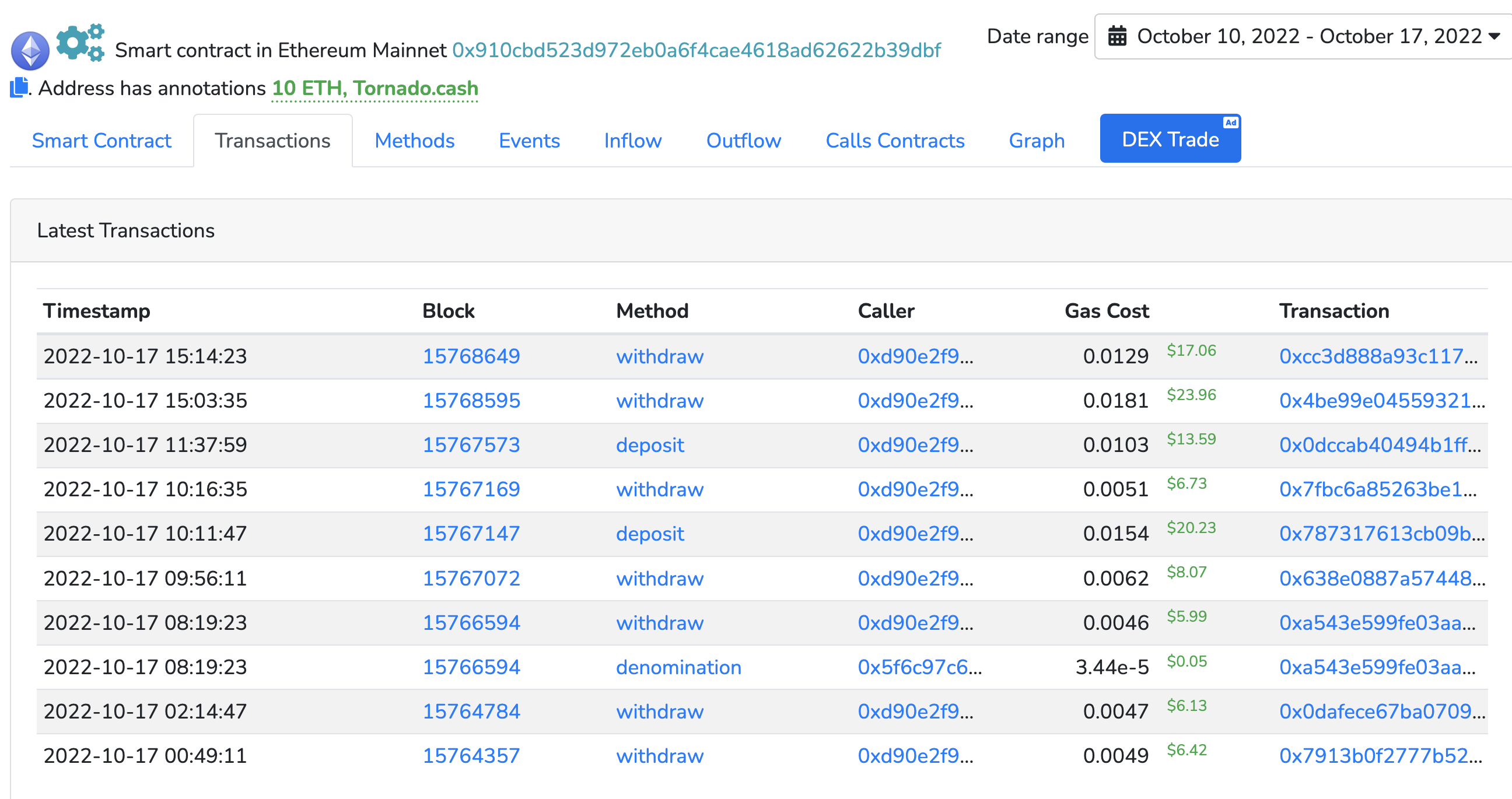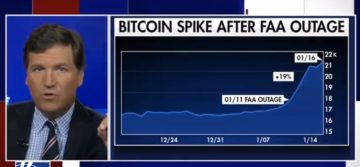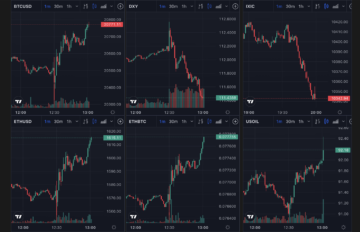“I’m a solo home validator in Country A. We are at war with Country B, and I decide that I’m not going to include donations to their military when it’s my turn to make a block,” a solo home validator says, adding:
“This validator should: be slashed for censoring, voluntarily exit, be tolerated,” he asks.
Martin Köppelmann of Gnosis, a long time ethereum dapp developer, says “ideally the validator would not even have that option.”
But validators currently do have that option, with about 50% of found blocks in ethereum currently censoring Tornado Cash, a transactions obfuscation tokenized smart contract that was recently sanctioned by the US Treasury.
When asked to choose what should be done about validator censoring on a network that does allow it, like current ethereum, ethereum’s co-founder Vitalik Buterin said:
“I would say ‘be tolerated’. Slashing or leaking or socially coordinated anything should only be considered for massive reorging of other people’s blocks, not making wrong choices about what to put in your own.
Any other answer risks turning ETH community into morality police.”
Köppelmann: “But is the goal that validators do active ‘content curation’ about what gets in and what not or is the goal to minimize their role of selecting content as much as possible up to a point were ideally only the payed fee is the deciding factor?”
Buterin: “No, validators doing active curation is not the goal at all. It’s more a question of what level of response is appropriate to what level of transgression.”
Köppelmann: “For the record, in this specific poll, I would also vote for ‘tolerate’.”
Ethereum Proof of Stake (PoS) validators, just like bitcoin Proof of Work (PoW) miners, have the choice of what transactions to include in their blocks, if any, and in what order.
That choice is limited to only their own blocks that they find. In bitcoin, for example, miners quite often don’t include any transactions at all.
Neutrality here, in regards to this Country A and Country B, is maintained by both countries having equal access to the network.
So if A doesn’t include B’s transactions, then B can include B’s transactions and A can do nothing about it in bitcoin.
Well, nothing in practice. In theory, if A had a lot more hashrate than B, then A can try to fork B’s blocks, but that enters significant complexities in regards to costs and rewards situations as A’s block can be forked by C, and unintentionally or uncaringly so if C finds a block while A is forking and so others build on C’s block, leading to the loss of a lot of money for A.
A therefore would need 51% of the network hashrate, and in a fairly concentrated manner, and would need to keep 51% if it is to continue such censoring, and would censor innocent parties in the process with a lot of ‘collateral damage’ as it can’t censor just the unwanted transactions in third-party blocks, but the entire block with all transactions, and in the end it would still not censor because B can just chain-split fork the entire network.
In that chain-split fork B would also fire all miners by changing the Proof of Work algo, making B a CPU/GPU mined network, adding new dimensions to any morality question because it would face raw profit incentives and in a distributed, anon network, as well as in a very open and globally accessible network, if of course they still keep that design with just the asics change.
So bringing us back to the beginning and the logical presumption in bitcoin that such network level censoring would not work, can be risky, and therefore the principle in bitcoin is neutrality at the network level.
But it’s not a hard principle, it’s not a network rule, it’s not an ‘is’ but a ‘should’ based on consequences.
In ethereum it doesn’t work too different, except if you’re forking someone else’s block, you get slashed.
That’s a network level penalty where some eth is taken away from your 32 eth deposit required to be a validator. The penalties range depending on severity, and for repeat offenders amount to being kicked out from the network as a validator.

Transactions to and from Tornado Cash therefore keep moving and keep being processed by the network, even though 50% of validators do not include such transactions and sites like Etherscan give you a “403 – Forbidden: Access is denied” when you try to explore the address.
Exploring it however probably falls under freedom of information, but the open source code is on there as well, except you can just run your own node and access it anyway.
And these transactions keep moving because the 50% that is censoring them, is not censoring those validators that are not censoring them.
This 50%, or even a higher percentage, can not so censor these validators without being slashed, and if they did it would be block based with plenty of innocent transactions also censored, making it unworkable.
‘Tolerate’ the censoring therefore may be more just applying the principle of neutrality, not least because getting involved at the protocol level on what in law would be called positive injunctions – that’s where you order someone to do something rather than not do something – gets complicated on a social level, but also more importantly gets very complicated technically.
It maybe can be done if one really wants to work at it in coming up with some formula that validates what validators are and are not including in their blocks, and can make some sort of principle based – neutral – assertions of just what should have been included, or indeed should have not.
That would presumably require some database, or excel sheet, managed by humans, or updatable, and even then it’s not very clear this can be done at a technical level.
So ‘be tolerated’ may translate more to ‘this is just how the network runs’ and ‘you can censor if you want to in your own blocks, but the network is not censoring.’
If we then elevate this to Country A and Country B, it just means both countries need to get some eth for their reserves so that they can validate their own transactions if necessary because the network won’t get involved as the network guarantees equal access, but not equal validation numbers.
That distribution of validators can matter, with the US Securities and Exchanges Commission arguing they have jurisdiction over the entire ethereum network because the majority of validators are in US.
“The SEC claims that because the majority of the Ethereum network’s validating nodes are located in the United States, the entire network is subject to US securities laws,” a legal source says.
It may be the majority, but it is not 51% of all validators, and it’s probably not even the majority per capita basis, but a US court will probably of course say that the US has jurisdiction, though an independent international court probably would not.
The geographical distribution of validators therefore matters for censorship resistance and other reasons as validators do kind of run the network; and therefore the way to deal with censorship is to run your own validator and not censor, as there probably isn’t any other way while keeping all the other important principles for the network, like decentralization and the lack of a decisive say by one man or a group of men.
- Bitcoin
- blockchain
- blockchain compliance
- blockchain conference
- coinbase
- coingenius
- Consensus
- crypto conference
- crypto mining
- cryptocurrency
- Cryptopolitics
- decentralized
- DeFi
- Digital Assets
- ethereum
- machine learning
- news
- non fungible token
- plato
- plato ai
- Plato Data Intelligence
- Platoblockchain
- PlatoData
- platogaming
- Polygon
- proof of stake
- Third
- Trustnodes
- W3
- zephyrnet












